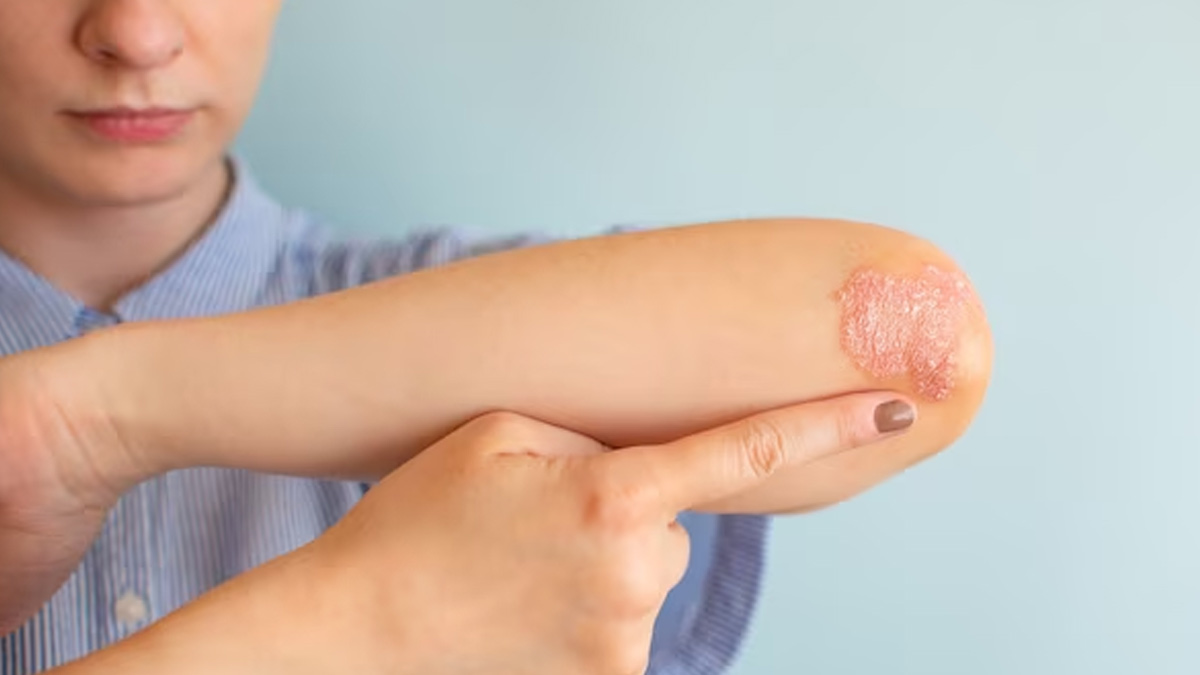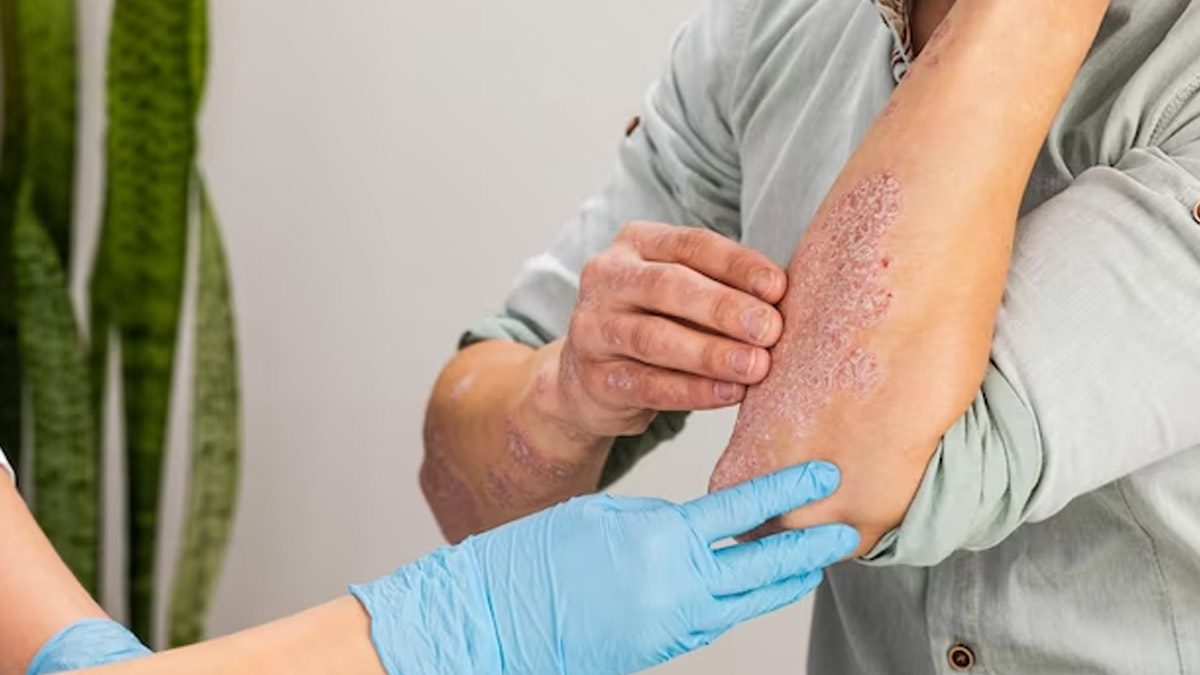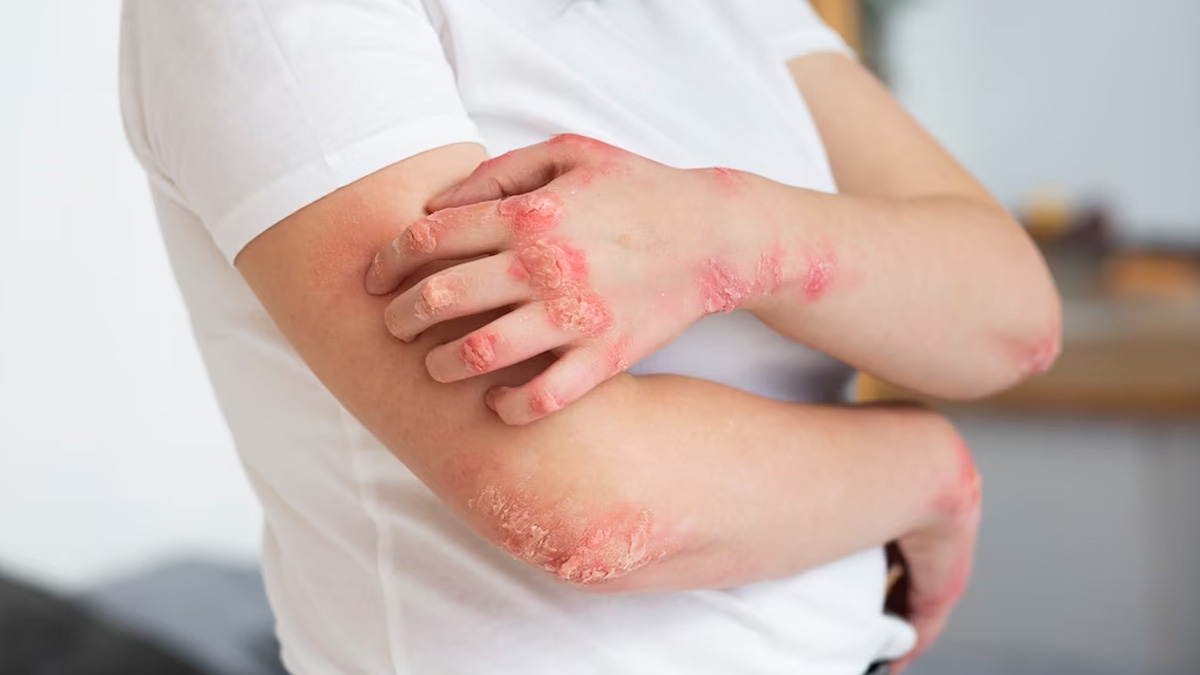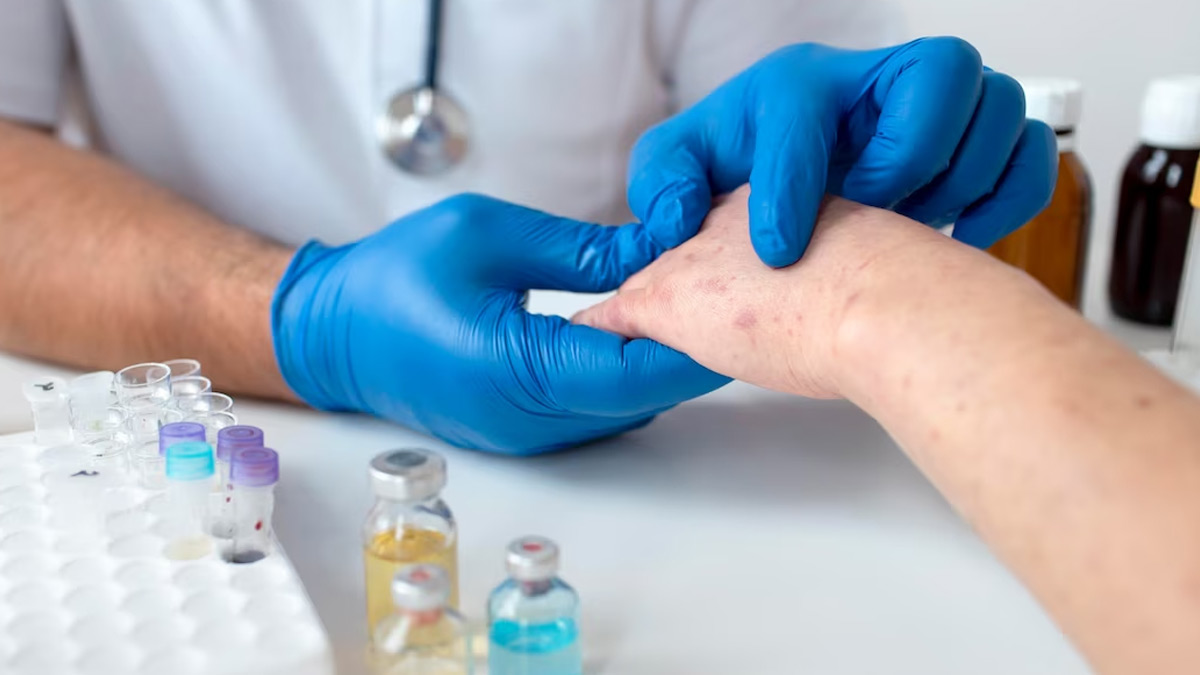

An autoimmune condition occurs when a person’s immune system attacks the body’s own healthy cells and tissues, leading to chronic inflammation, tissue damage, and organ dysfunction. This can also impact the skin, leading to various skin-related symptoms. Psoriasis is one such skin problem that causes skin rashes, discolouration, and other skin-related issues. August is Psoriasis Awareness Month and we at OnlyMyHealth have taken the initiative to speak with Dr Usha Beloskar, Consultant-Dermatologist, SL Raheja Hospital, Mahim-Fortis Associate, to understand what psoriasis is and its common triggers.
Understanding Psoriasis And Its Risk Factors

“Psoriasis is an autoimmune skin disease that leads to a rash with itchiness, scaly patches, most commonly on the knees, elbows, trunk and scalp,” says Dr Beloskar, adding that many people who are inclined towards psoriasis may be free of symptoms for years until the disease is triggered by some environmental or other factors.
Also Read: Why You Shouldn’t Pick On Scabs: Dermatologist Explains The Condition Called Dermatillomania
According to the Indian Dermatology Online Journal, data derived from hospital-based studies, mostly from North India, suggests that the prevalence of psoriasis in adults varies from 0.44-2.8%, with a much lower prevalence in children. The academic paper adds that the peak age of onset in adults is in the third and fourth decade of life, with the majority being male.
How Is It Different From Other Skin Problems

Differentiating psoriasis from other skin conditions can be challenging. But some key features can help distinguish it. This includes:
- Differences in appearance as psoriasis usually causes thick, red, and scaly patches of skin, often covered with silvery-white scales, which are usually itchy and painful
- Psoriasis symptoms commonly appear on the elbows, knees, scalp, lower back, and other areas of the body
- It causes nail changes, joint pain, and stiffness in some cases
- There’s something called scalp psoriasis that can cause scaly patches on the scalp
If you suspect a psoriasis onset, visit your healthcare provider or a dermatologist, who can perform a skin biopsy to confirm the diagnosis of psoriasis and rule out other skin conditions.
Common Triggers Of Psoriasis
According to Dr Beloskar, psoriasis is a chronic condition with no permanent cure. The only way to manage it is to avoid common triggers, which include:
- Strep throat or skin infections
- Dry and cold weather
- Skin injury like as scrape or cut, severe sunburn or a bug bite
- Smoking and exposure to secondhand smoke
- Heavy alcohol consumption
- Certain medications which include lithium, like antimalarial and high blood pressure drugs
How To Manage The Skin Condition

Treatment options that can provide relief from psoriasis symptoms include:
- Steroid creams
- Moisturisers for dry skin
- Medication to slow skin cell production (anthralin)
- Medicated lotions or shampoos
- Vitamin D3 ointment
- Vitamin A or retinoid creams
- Ointments or creams may be adequate to improve the rash in small areas of the skin; if it gets larger, or if you also have joint pain, you’ll need other treatments
Conclusion
During this Psoriasis Awareness Month, make sure to educate yourself and others about the autoimmune skin condition. There’s no way to tell who can get it, therefore, being aware is of utmost importance. If you know someone who is experiencing the symptoms listed above, advise them to seek professional help.
اكتشاف المزيد من ينبوع المعرفة
اشترك للحصول على أحدث التدوينات المرسلة إلى بريدك الإلكتروني.
